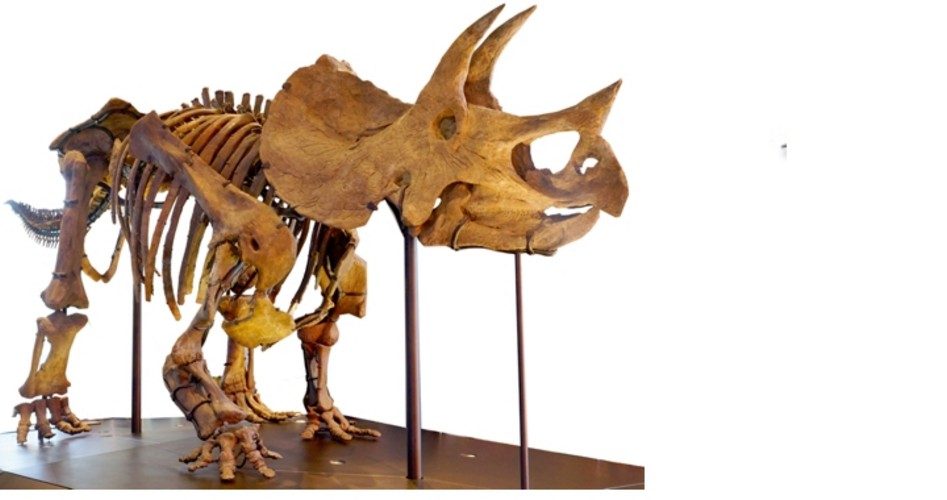
A former scientist at California State University-Northridge (CSUN) is suing the school for firing him after he made a discovery that appeared to prove a triceratops fossil was only thousands of years old, rather than the 65 million years the university’s scientific community insisted.
In 2012, Mark Armitage, an electron microscope technician at CSUN, was part of a dinosaur fossil dig at Montana’s famed Hell Creek formation excavation site, when he uncovered the horn of a triceratops, a dinosaur many scientists believe roamed the earth — and became extinct — over 60 million years ago. But when Armitage examined the horn under a powerful university microscope, he made a fascinating discovery that stunned, and embarrassed, members of the university’s scientific community. Attached to the fossilized horn was soft tissue, indicating that the dinosaur in question most likely was alive as recently as 4,000 years ago.
Armitage, a published professional who supports a “young Earth” creationist view of history, brought the discovery to the attention of the wider science world with the publication of his findings in the peer-reviewed Acta Histochemica Journal. He also discussed his findings with university students he was training on high-powered microscopes. One of those students passed the information on to Armitage’s supervisor, Dr. Ernest Kwok, according to a lawsuit filed on behalf of Armitage by the conservative legal advocacy group the Pacific Justice Institute. According to the complaint, Kwok confronted the Christian, creationist Armitage, shouting at him: “We are not going to tolerate your religion in this department.”
Armitage said he reported the incident to the department chair, who told him that there was no issue and to put the incident out of his mind. But according to the lawsuit, the day that Armitage’s paper was published online, February 12, 2013, Kwok called a secret meeting of other staff members, during which the decision was made to fire Armitage.
Several days later a manager in Armitage’s department informed him that he was the target of a “witch hunt” and encouraged him to resign, according to the lawsuit. On February 27 Armitage was officially terminated from his employment.
According to the complaint, while Armitage had been in his position for over three years and was led to believe it was permanent, CSUN abruptly claimed his appointment was only temporary and that there was suddenly a lack of funding for his position.
“Terminating an employee because of his religious views is completely inappropriate and illegal,” said Brad Dacus, president of Pacific Justice Institute. “But doing so in an attempt to silence scientific speech at a public university is even more alarming. This should be a wakeup call and warning to the entire world of academia.”
Michael Peffer, a Pacific Justice Institute staff attorney who is assisting in the suit, said that it was “apparent that ‘diversity’ and ‘intellectual curiosity,’ so often touted as hallmarks of a university education, do not apply to those with a religious point of view. This suit was filed, in part, to vindicate those ideals.”
Armitage pointed out in an interview in Genesis Week that he had made no creationist assertions in his paper, but merely presented the facts of the case as he observed them. He said that the only conclusions he drew in his paper were that “this needs to be investigated further. We have a lot of work to do.”
He suggested that he was terminated because hardcore evolutionists at the university were unwilling to face the possible implications of his discovery — that the Earth is much younger than evolutionists have insisted, and that evidence they use to age the earth in tens of millions of years might actually be used to date it at only thousands of years old.
Photo of triceratops mount: “LA-Triceratops mount-1” by Allie_Caulfield from Germany


